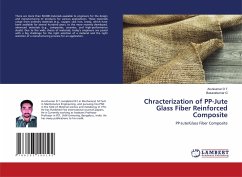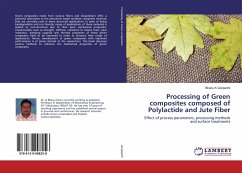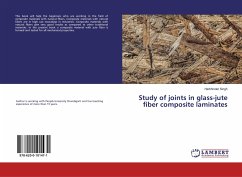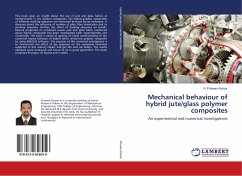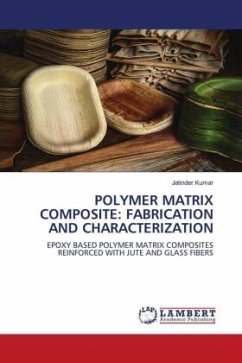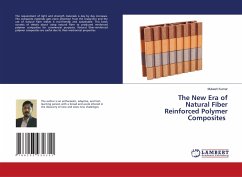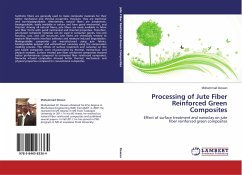
Processing of Jute Fiber Reinforced Green Composites
Effect of surface treatment and nanoclay on jute fiber reinforced green composites
Versandkostenfrei!
Versandfertig in 6-10 Tagen
36,99 €
inkl. MwSt.

PAYBACK Punkte
18 °P sammeln!
Synthetic fibers are generally used to make composite materials for their better mechanical and thermal properties. However, they are expensive and non-biodegradable. Alternatively, natural fibers are inexpensive, biodegradable, easily available in nature and have good mechanical, and thermal. Among all natural fibers, jute fibers are easily available in fabric and fiber forms with good mechanical and thermal properties. Therefore, jute-based composite materials can be used in consumer goods, low-cost housing, cars, and civil structures. Jute fibers are chemically treated to improve fiber/matr...
Synthetic fibers are generally used to make composite materials for their better mechanical and thermal properties. However, they are expensive and non-biodegradable. Alternatively, natural fibers are inexpensive, biodegradable, easily available in nature and have good mechanical, and thermal. Among all natural fibers, jute fibers are easily available in fabric and fiber forms with good mechanical and thermal properties. Therefore, jute-based composite materials can be used in consumer goods, low-cost housing, cars, and civil structures. Jute fibers are chemically treated to improve fiber/matrix interface adhesion and moisture induced degradation. Biodegradable composites are manufactured using jute fabrics, biodegradable polymer and with/without nanoclay using the compression molding process. The effects of surface treatment and nanoclay on the jute based composites were characterized by thermal, mechanical, and physical analyses. Surface treated jute fiber reinforced compositesshowed better performances compared to untreated fiber reinforced composites. Nanoclay infused composites showed better thermal, mechanical, and physical properties compared to conventional composites.



